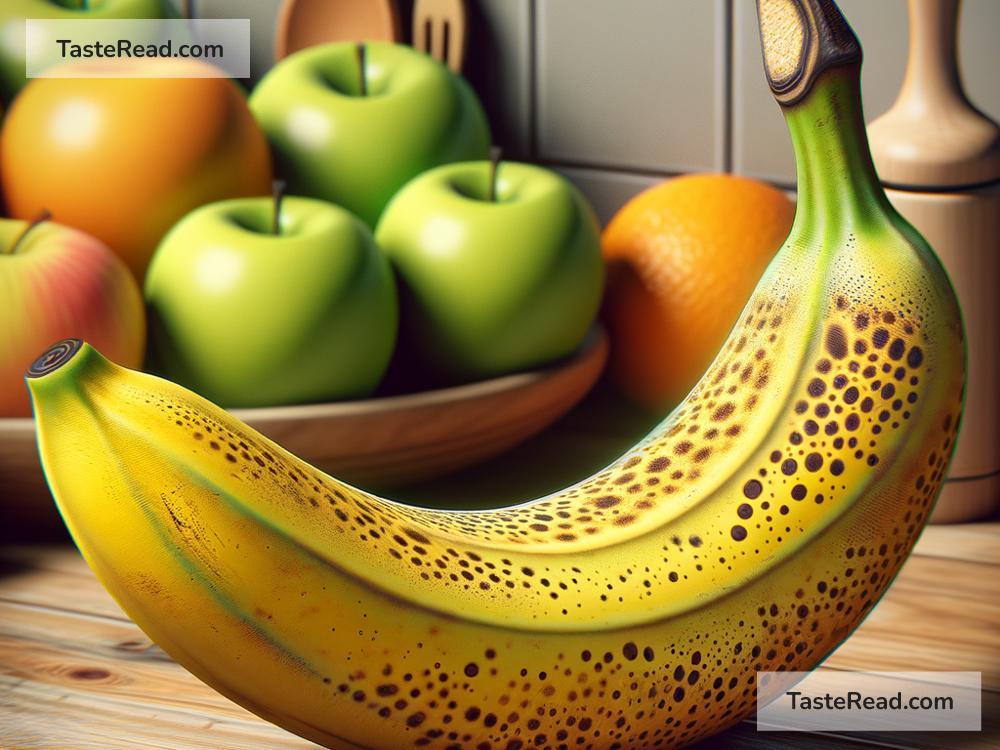Why Bananas Ripen Faster Than Other Fruits
Bananas are one of the most popular fruits in the world—they’re sweet, easy to eat, and packed with nutrients like vitamins B6, C, and potassium. But if you’ve ever stocked up on bananas, you may have noticed something frustrating: they seem to ripen faster than most other fruits. You buy them when they’re green or slightly yellow, but a few days later, they’re already turning brown. Why does this happen? Let’s explore the science in simple terms.
The Role of Ethylene Gas in Ripening
First, we need to understand what causes fruits to ripen in the first place. Ripening is a natural process during which fruits become softer, sweeter, and more flavorful. It’s also when the fruit’s skin changes color, signaling that it’s ready to eat.
Many fruits produce a natural plant hormone called ethylene gas. Ethylene is like a chemical messenger that tells a fruit to ripen. For fruits like bananas, this gas triggers enzymes that help break down starches into sugar, soften the fruit’s texture, and change its color.
Bananas are “climacteric fruits,” which means they produce a lot of ethylene gas. Other climacteric fruits include apples, avocados, and peaches. However, bananas have an unusually high amount of ethylene production compared to many other fruits. Once a banana starts producing ethylene, the ripening process speeds up significantly.
How Bananas Ripen So Quickly
Bananas don’t just produce ethylene—they react to it faster than most fruits. Think of bananas as very sensitive fruit that responds quickly to the ripening signal ethylene provides. Here’s how it works:
-
Self-Ripening Process: Bananas release ethylene gas as they start to ripen. That ethylene then triggers even more ethylene production, creating a cycle that speeds up the ripening process. This is why, once your bananas start to turn yellow, they seem to ripen overnight.
-
Thin Skin: Bananas have a thinner skin compared to fruits like apples or oranges, which means their fragile exterior offers very little protection against the effects of the ethylene gas. For example, an orange has a tough rind that slows down ripening, but bananas don’t have that kind of natural barrier.
-
Starch Breakdown: Bananas are rich in starch when they’re green. As the ethylene gas activates enzymes inside the banana, those starches quickly convert into sugars. This makes the banana sweeter, but it also means the fruit is softening at a rapid pace.
The Domino Effect of Ethylene on Other Fruits
Ever heard the saying, “One bad apple spoils the bunch”? With bananas, this is especially true, but it might be better to say, “One ripe banana spoils the bunch.”
Bananas don’t just produce ethylene gas; they also share it with the fruits around them. If you store bananas next to other fruits, the ethylene gas will cause those fruits to ripen faster, too. This is why many people advise not to keep bananas near other produce unless you deliberately want to speed up ripening. For example, placing a ripe banana near hard avocados will make those avocados soften much faster.
Temperature Matters
Another factor in banana ripening is temperature. Bananas ripen faster when they’re kept at room temperature, ideally around 68–77°F (20–25°C). Higher temperatures will speed up the process even more, while lower temperatures can slow it down.
Interestingly, refrigeration can lead to uneven results. If you put bananas in the fridge before they’re fully ripe, the cold temperature slows down the ripening process but can also cause the banana skin to turn black faster. The inside of the banana may still remain firm and edible, but the appearance can be off-putting. If you refrigerate a banana after it’s fully ripe, however, it can extend its shelf life for a few days.
How to Make Bananas Ripen Even Faster (Or Slow Them Down)
Sometimes you want your bananas to ripen faster—for instance, when you’re planning to bake banana bread. Here are a few simple tricks to speed up their ripening:
– Place in a Paper Bag: Bananas in a paper bag trap ethylene gas, speeding up the ripening process.
– Add a Ripe Fruit: Add a ripe apple or tomato to the paper bag to boost ethylene production.
On the other hand, if you want to slow their ripening, try these tips:
– Separate Them: Bananas ripen faster in bunches because the ethylene gas is concentrated. Pulling them apart can slow down the process.
– Keep Them Cool: Store bananas in a cooler area of your kitchen—not near a stove or window where it’s warm.
– Refrigeration: Put ripe bananas in the fridge to delay spoilage, though the skin may darken.
Conclusion
Bananas ripen faster than other fruits primarily because they produce and respond to ethylene gas at a faster rate. Their thin skin, climacteric nature, and high starch content accelerate the ripening process. While this makes bananas convenient as a quick-to-eat fruit, it can also be a challenge when you want them to last longer.
Now that you understand why bananas ripen so fast, you can better manage how to store them and even speed up or slow down their ripening based on your needs. Regardless of how fast they ripen, bananas remain one of nature’s simplest and tastiest delights!


